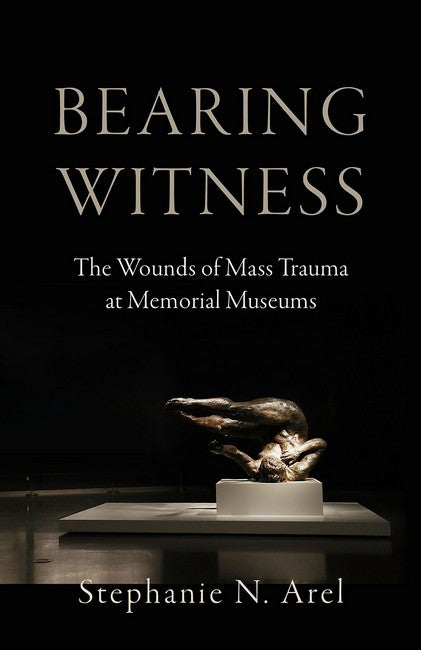Dr. Stephanie Arel is a lecturer in the Department of Theology at Fordham University in New York City.
Description
Introduction The Wastelands of Mass Trauma Chapter One Public Suffering: Interpreting Mass Trauma through a Theological Lens Chapter Two Fragments: Living Among the Dead at Memorial Museums Chapter Three The Aftermath of Trauma: Enduring Suffering Chapter Four Negotiating Publics: Visitors, Survivors, and Family Members at the Door Chapter Five The Vocation of Memory: The Memorial Museum Worker as Wounded Healer
Arel's Bearing Witness expands how we think about religion in public, presenting museum workers as mediators of a complex public healing process. Pairing her expertise in trauma studies with ethnographic research in the field of memorials, she provides a rare and spiritually sensitive glimpse into the daily labor of bringing people into relationship with the past. In this outstanding work of public theology, Arel leads us into unbearable histories by showing how we, if guided by those who touch the past purposefully, can make meaning in the fragments. --Shelly Rambo, Boston University School of Theology Bearing Witness is a moving meditation on the lives and work of people who conceive of and work in museums and other commemorative sites designed to memorialize the tragic, traumatic events that many of us would like to forget. These terrible, murderous events took place in the killing fields of Cambodia, the Nazi death camps of Poland, the Twin Towers of New York, the neglected neighborhoods of Soweto. Stephanie Arel's sensitive interviews with the guardians of these sites of traumatic memory reveal the importance of their work as mediators between the victims of evil and those who, for various reasons, make pilgrimages to the sites where thousands, or millions, of them suffered and died. She also beautifully shows how these intermediaries transform the emotional toll of their work into forms of healing and cries for justice. --Edward Berenson, New York University Combining the keen insight of an ethnographer, the perceptive observations of a psychologist, and the penetrating inquiry of a theologian, Stephanie Arel explores the array of emotional, physical, and spiritual impacts on individuals who have elected to live a life of service by working in memorial museums. She vividly captures the complex challenges for these "guardians of memory," who must engage as professionals in their areas of expertise while continuously confronting the evidence and heartbreaking stories of trauma. With impressive scholarship, Dr. Arel posits that the act of bearing witness by memorial museum workers is more than a calling; it is evidence of a fundamental belief in the possibility of a better future. Yet, the work of those who tend to the pain of others and who daily facilitate the obligations of remembrance comes at considerable personal cost, and through her analysis, Dr. Arel offers a constructive road map for how these "wounded healers" and the institutions for which they work can negotiate challenges unique to this field. --Alice M. Greenwald, president and CEO (retired), National September 11 Memorial and Museum Stephanie Arel's continuous commitment to improving the mental health of memory practitioners is incredibly important for post-conflict communities, such as Bosnia and Herzegovina. Having worked in the Balkans for over two decades, this is the first book I have had the pleasure to engage with that presents both theoretical and empirical knowledge on such important issues, which I as a memory practitioner have been dealing with in both personal and professional capacity. --Velma Saric, founder and president, Post-Conflict Research Cent

